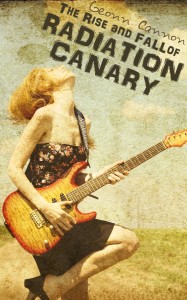My book CALLING HIS BLUFF (The Tylers, Book 3) released recently and one of the reviewers commented that she enjoyed the “remember when…” moments. Sarah and JD, the main characters, have known each other from childhood. JD is Sarah’s brother’s best friend and he spent years practically living with Sarah’s family, due to the chaos in his own home. Their memories of each other are very different though. She remembers him as the older boy she had a crush on who never wanted her. He remembers her as the quiet place to land in the middle of the noise. These memories influence them as adults, to the point where they don’t see each other clearly because of them. This reviewer’s comment started me thinking about the stories from our childhoods that we tell about ourselves, to ourselves, about our families and friends, and how we use those stories to define ourselves as adults.
My son has been asking questions about his dad since he was less than three years old.
For seven years, I’ve been talking with him about why his dad isn’t a part of his life, what my son might choose to do about the situation when he’s older, and how to manage the emotions that often rumble beneath the surface (or not so beneath) of his generally calm nature.
“Do I have a dad?”
“Where is my dad?”
“What does he do?”
“What’s his name?”
Deciding which questions to answer, at what age my child is capable of understanding what I share with him, is like taking the most important test of your life, again and again, without ever being told how to study for it or even what the questions might cover. It is like telling a story serially, but in layers instead of episodes. Each time I tell him the story, I decide whether or not this time he’s old enough to hear new information. To be told things that I previously withheld from him out of protectiveness. He knows, because I am brutally honest about this part, that I am not telling him everything. That I will tell him everything. That I think this is one of the hardest things he will ever do, figuring out how to negotiate this big empty space in his life, and that I give him the tools and the information I think will not hurt him.
As he gets older, the tools are sharper, the information more complicated.
I know there are stories from my childhood that define me still. The one about the time I got a fishhook stuck in my hand and didn’t cry. How I watched Halloween at a fifth grade sleepover party and then spent the next few years checking in my closet and under my bed before I went to sleep each night. That my grandpa drew to an inside royal flush in the stock car poker game on the Army cavalry train. That my dad and his best friend started skipping school to attend the Cubs home-opener in elementary school and continued the tradition for years. How my mom and her best friend moved to Hawaii in their twenties with no jobs and no place to stay, planning to get a room at the YWCA.
These are stories that define my childhood. Of adventure and loyalty, of bold action and anxiety. I tell these tales to my son now as a way to help him know his family, especially the people who weren’t alive to see him born.
I know that my son will grow up with his own set of stories. His memories of his childhood will be different than my memories of it. Moments that seem huge to me might not register as blips on his internal radar. And the most important stories he remembers might be ones that he never shares with me.
I wonder how many of his stories will be about his dad.
I wonder how my son’s stories of his dad, and his dad’s absence, will influence him.
I know people who have gone to great length to track down family members—fathers, mothers, lost siblings—because they feel as if there is a gaping hole in their life without some kind of resolution, even if it’s the resolution of learning that you are indeed not wanted.
I also have a friend whose dad was never a part of his life and my friend has absolutely no interest in ever speaking to the man. “Good riddance, bad rubbish” is his philosophy regarding the man who abandoned his mom.
My son’s father has an open invitation to contact me at any time, but has not yet chosen to do so. I type ‘yet’ in that sentence as a promise to myself that nothing is ever certain and anything might happen. Someday. I fantasize while I am writing this post that he might occasionally search me out online, although I don’t think that he does. I think that he closed a door and has never looked back.
I told my son’s father about my pregnancy while sitting on a bench across the street from a Starbucks in Andersonville. I stopped in the coffee shop first and bought a frozen mocha coffee thing, even though I rarely drink coffee, because I was pretty sure giving myself something to do with my nervous hands was going to be a good idea.
Now, whenever I go into a Starbucks, I think about that day. When I drive through Andersonville, I pass that corner and see the bench and think, “That’s where we sat when I told him.” I wish sometimes that they would remove that bench, or move it down the block, so when my eye is drawn to that corner as I pass, as it inevitably is, there would be nothing there. Just an empty concrete pad where a bench used to be on which I once sat and offered someone a chance to make their own judgment call.
The story I told my son when he asked me about his dad for the very first time went like this:
“Sometimes people become parents when they aren’t ready to be parents. It doesn’t make them bad, it just means they weren’t ready. Your dad isn’t a part of our lives, but that doesn’t mean you can’t think of him and hold him in your heart with love.”
And then I listed every aunt, uncle, grandparent, and cousin my kid had ever met—and all of the friends that we consider a part of our family—all the people who loved him, in an effort to make sure that our family of two didn’t feel small. I did that every day for years. I do it still. I have always wanted my child to feel surrounded by love.
I’m guessing that this story I told, which was as simple as I knew how to make it, didn’t make a lot of sense to an almost three year old, although my kid is pretty damn clever. But he’s figured it out since.
He’s also made his own additions to the story at times. He told me once, when he was about six, that he thought his dad had died and that I was concealing it from him.
I almost wished it were true. This makes me feel like a horrible person. But death is so much more manageable than explaining to your child that yes, his other parent is alive. Yes, that person knows he exists. No, that person does not seem to have any desire to know his child. There is no way to tell that story that does not make a child feel less than.
My son has speculated about what his dad’s job might be. About where he lives. About what his full name is. I have answered more questions every year, but reserve the full story still for “when you’re older.” We debate about what “when you’re older” means. Kids are too internet-savvy these days and it’s not that hard to find my son’s father online. I don’t want to put my child in the position of being able to initiate contact before he’s capable of handling the fallout if that goes badly.
So I wait for my son to write his own stories and then bring them to me, or not. He is of an age now where he talks to his closest friends about important stuff. His friends are good kids and, because they are human, many of them have important stuff of their own to share in exchange. I hope the stories he tells himself, and them, from his childhood are about many things. About the time I took him out into the ocean and the giant wave “made us go swimming” (how he remembers it…far more gently than I do!). How his uncle’s dog once raced around a corner so fast she knocked him on his butt and ran right over him, and he got up, saying, “I’m not crying! I’m laughing so hard the tears are coming!” About how his uncle skied into a tree and could have died and we spent night after night distracting him from the pain by watching every episode of Top Gear and Storage Wars ever made. That he comes from a family of pool hustlers and poker players and trivia fanatics.
I hope that whatever stories my son tells himself about his dad, they are ones in which my child sees himself as worthy of love and a person of value, despite this early rejection that haunts him. I hope that these stories, the ones that I know are made of anger and pain and loneliness, are a skinny thread in the world’s biggest fucking afghan of love and laughter and poop jokes. (Let’s be realistic: It’s my family. There will always be poop jokes.)
It’s funny how hard it can be to see the things you’re writing about while you are putting the words on the page. When I was writing CALLING HIS BLUFF, I wanted to do something fun and light, with a Vegas adventure and a woman who keeps her wild side close to her chest. Turns out that I was also writing a book about something else, as always. I was writing about the stories that we tell ourselves about our own lives. How they follow us, define us. I was writing about something real.























